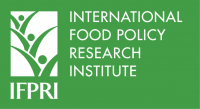Helping Children Learn: Social Safety Nets and Cognitive Development

It has been well documented that children's early years, from birth through when they enter preschool, are crucial to their future health, cognitive, and economic well-being. Young children suffer disproportionately more than adults from economic shocks such as drought or food price spikes, as well as from non-economic shocks, like divorce or family separation. Undernourished children have been observed to have poorer cognitive skills in adulthood, are less likely to complete school, and are less productive economically. Children whose physical growth is stunted due to undernourishment in the first two years of life never fully recover.
Less is known, however, about how shocks, both economic and non-economic, impact older children. Some studies suggest that the preschool years and beyond are more important for cognitive and socio-emotional development, and that shocks during this period can impact children through less direct routes than health and nutrition. During times of shock, parents may spend less time intellectually stimulating their children (for example, reading with them) and may invest less in their education.
To add to this growing research on older children, a study released by IFPRI's Ethiopia Strategy Support Program (ESSP) in January used panel data for a group of Ethiopian children from 2006-2009, when they were between the ages of 4 and 6 and 7 and 9.6, respectively. The study compared the children's scores on a cognitive test from 2006 and 2009 and considered a variety of shocks that occurred during these years, as well as shocks that occurred in 2002 when the children were under the age of 2. These years are of particular significance in Ethiopia. In 2002-03, a major drought struck the country, impacting the food security for millions of households for several years. In 2007, food prices rose drastically; this was further exacerbated by localized rain failures in some parts of the country. Finally, in 2005, the Ethiopian government established one of the largest social safety net programs in Africa. The Productive Safety Net Programme (PSNP) changed food aid in the country from being purely emergency-based to targeting chronically food-insecure regions and households through food-for-work programs and direct transfers.
The study found that drought and divorce negatively impacted children's cognitive test scores by 0.18 and 0.39 standard deviations, respectively. Rising cereal and meat prices also hurt children's scores by 0.98 and 0.47 standard deviations. However, the PSNP proved to have a positive impact on children's cognition. After controlling for individual child and household characteristics, the study found that the program improved children's test scores by 0.18 standard deviations. This suggests that, at least in terms of children's cognitive development, the PSNP has indeed been successful in protecting households from the adverse effects of economic shocks.
The results of the study have several implications for future policies. Investments need to continue to be made in children, both in early childhood and beyond their preschool years. This is particularly true in countries like Ethiopia, where shocks are a common occurence. If designed properly, social safety net programs can have the added benefit of enhancing children's cognitive development, thus improving child welfare.
